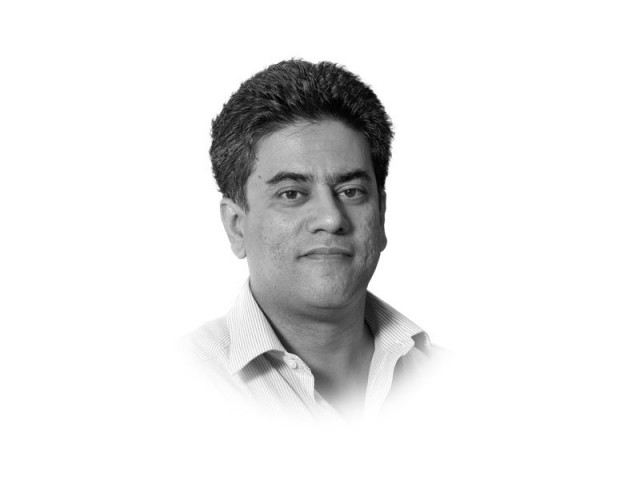Kudos to Pakistan
As a Pakistani, it was important for me to show the Afghans what the real Pakistan is

The writer, a former editor of The Express Tribune, is director of the Centre for Excellence in Journalism at IBA, Karachi. He tweets @tribunian
To give some context, one had to understand that for the past 15 years, the festival has taken place in the heart of Geneva parallel to the annual main session of the UN Human Rights Council in March. What made this year special was that three entries produced at our centre, the Centre for Excellence in Journalism (CEJ) were screened at the festival.
I was invited to be a panellist at the sessions held in Geneva as well as Lausanne. It was a unique opportunity to be able to comment on the three documentaries which were produced on Pakistani subjects by a group of Afghan and Pakistani documentary makers.
The documentaries were produced by a first-of-its-kind residential training, led by the award-winning journalists from Serbia, Sonja Ristic and Zoran Ulafi, which was held in partnership with the Embassy of Switzerland in Pakistan, Fondation Hirondelle, the Centre for Excellence in Journalism, International Film Festival, Forum of Human Rights and the United Nations Information Centre, Islamabad. The two movers behind the project were Vittorio Cammarota of the UNIC and Caroline Vuillemin of Fondation Hirondelle.
The film festival screened the three documentaries from CEJ - jointly produced by young Pakistani and Afghan filmmakers during a documentary makers training program on Human Rights and Peace-building held in July 2017. The documentaries, Bahaali, Sound of Silence and Transgenders in Pakistan are focused on drug abuse in children, persons with disabilities and transgenders’ rights.
What is important is that the FIFDH reaches out to young people: more than half of its audience is younger than 35. In the question and answer session that followed the documentaries, there was a lot of curiosity about Pakistan. When I explained how transgender people in Pakistan have been given the right to their identity in official documents, there was great appreciation. I again made the point that not only bad news comes from Pakistan. There are a lot of positive things happening here.
Bahaali was a journey into the lives of two children who are recovering drug, addicts but do not let their history of addiction define them. ‘Sound of Silence is a 15-year-old girl’s story who was born deaf. Through her story, the film explores the challenges faced by deaf people in Karachi and how they deal with them. ‘Transgender in Pakistan’ is a radio documentary that voices the concerns and struggle of employment for the transgender community in Pakistan.
Our centre’s training programme provided a unique opportunity to nationals of both countries to produce state-of-the-art documentaries and enhance dialogue among each other. Documentary makers from both countries, who took part in the training programme included Nameera Ahmad, Kanzul Fatima Arif, Gulzar Nayani, Said Nazir, Tamana Ayazi’s, Mohammad Behroozian, Najiba Noori’s, and Sadeq Naseri.
At a time when Pakistan-Afghan relations are under a cloud, I believe it is very important for the media to work towards peace-building. To give credit to our government and our intelligence agencies, once it became clear to them that the topics for the documentaries would not have anything to do with what they refer to as the “state security”, the young journalists were able to do their work in peace. But many bridges had to be crossed. The growing suspicion of foreigners by our state is isolating Pakistan and not the other way round.
As a Pakistani, it was important for me to show the Afghans what the real Pakistan is. That meant giving the opportunity to explore on their own and to see how hospitable and loving Pakistanis can be to their guests. We somehow assume that most Afghans have visited Pakistan, which is not the case. In fact, they come for the first time to our country with trepidation - after all, we are blamed for most of their country’s problems.
And one cannot underestimate the role played by the media. It is my dream to make the CEJ a regional centre for excellence. We need to bring in journalists from the region and give them training here in Pakistan. Only then will perceptions change and we will be able to give them a correct picture of Pakistan. Let us all work towards this.
Published in The Express Tribune, March 26th, 2018.
Like Opinion & Editorial on Facebook, follow @ETOpEd on Twitter to receive all updates on all our daily pieces.














COMMENTS
Comments are moderated and generally will be posted if they are on-topic and not abusive.
For more information, please see our Comments FAQ